
Does normalization of Gulf-Israeli relations affect Syria?

Enab Baladi – Nour al-Deen Ramadan
The United Arab Emirates (UAE) and Bahrain normalization with Israel, under US sponsorship, raises questions about the impact of “this express train of normalization” on the countries of the region, mainly Syria, which has borders with Israel.
The US perspective in response to this question was represented by the proactive answer o of Jared Kushner, the senior adviser to the US President Donald Trump, said in a press interview, on 17 August, after weeks of the UAE-Israeli normalization ties, that the importance of the normalization agreement lies in allying against the Iranian presence in Syria, and Lebanon.
Kushner pointed out that the people of the region know very well that their countries are unstable, experiencing threats because of Tehran. He believes that the Iranian-backed militias are the ones that destabilize Yemen, Syria, and Lebanon and that it is in the interest of countries in the region to arrange their relationship with Israel to confront Iran, pointing out that the unification of the countries of the region “makes it difficult for Iran to sow discord between them, as it has done for years.”
Hassan al-Nifi, a political analyst, in an interview with Enab Baladi, said that the Arab Gulf states follow American policy in all its forms and are compatible with its desire. The normalization process does not have a direct impact on the Syrian issue because the guidelines of these countries do not deviate from the US astronomy.
This was evident when the UAE and Bahrain re-opened their embassies in Damascus in 2018. Other Gulf countries wanted a similar step through issuing a spate of statements before they were stopped by Washington, according to al-Nifi.
Political analyst Samer Khliwi told Enab Baladi that Bashar al-Assad is not against the countries which have normalization ties with Israel, for they played a pivotal role in his remaining in power until now, by putting pressure on European countries and the US.
Furthermore, they allowed Russia and Iran to intervene on his side, and those countries supported al-Assad secretly in the past and publicly in the last two years.
Khliwi added that Bahrain, the UAE, Israel, and the Syrian regime have common denominators, such as standing against Turkey. This is evident by supporting the Kurdish-led “Syrian Democratic Forces” (SDF) as a spearhead against Turkey.
Concerning Kushner’s talk about the benefits of normalization for the countries of the region, Khliwi said that this is for media consumption only, and is unrealistic, as he put it.
A shy official Syrian position
The official media in Syria, which reflects the Syrian regime’s position, has ignored releasing any news related to the Bahraini move while normalizing its ties with Israel. No Syrian official has issued an exact position on Bahrain’s normalization deal with Israel, as of the date of writing this report.
This ignorance was apparent when the UAE-Israeli normalization deal was announced last August. The ruling “Arab Socialist Ba’ath” party in Syria expressed the official position, which condemned the UAE’s move. Later, al-Assad’s advisor, Bouthaina Shaaban, appeared in an interview with the Lebanese al-Mayadeen channel after three days, wondering about the Emirati goal of the step, believing that surrendering to Israel will not make any country better than it is.
The Syrian regime has no official position, which is explained by the political analyst Hassan al-Nifi by two factors: The first is that the Syrian government cannot set an exact position against these countries with which it has good relations, in light of Arab and international isolation.
The second is that the Syrian regime is trying to keep its image before its popular base. The Syrian government is “resistant and reluctant” and seen as the front line status against Israel.
The Syrian regime describes Israel as an occupying country and the enemy since its establishment. Three wars broke out between the two countries, namely the “Arab-Israeli” war in 1948, the “six days” war in 1967, and the “October” war in 1973.
Public peace talks between Israel and Syria:
- “Madrid” conference 1991: Lebanon, Jordan, and Palestine also participated in this peace conference, co-sponsored by the United States and Russia.
The Madrid formula is based on Security Council resolutions and the principle of “land for peace.”
- 1999 Talks: Attended by Israeli Prime Minister Ehud Barak and Syrian Foreign Minister, Farouk al-Sharaa, in Virginia.
- January 2000: Israel shows its unwillingness to withdraw from the Golan Heights completely, but wants to keep lands near Lake Tiberias, which causes the collapse of the negotiations.
- March 2000: Hafez al-Assad meets with US President Bill Clinton in Geneva to resume negotiations, but all of this collapses due to Clinton’s refusal to pressure Barak to withdraw entirely from the occupied Syrian territories.
- January 2004: Israeli Prime Minister Ariel Sharon is ready for talks on the condition that Damascus stops supporting Palestinian organizations and Hezbollah.
- June 2007: Israel announces the return of all lands on condition of disengaging Damascus and Tehran, and expelling Palestinian groups from Syria.
- April 2008: Israel is ready to withdraw from the occupied Golan in exchange for peace with Syria.
- 2011: The outbreak of the Syrian revolution, and all public talks stopped.
- Since 2011, Israel has launched dozens of airstrikes across Syrian territory.
if you think the article contain wrong information or you have additional details Send Correction
النسخة العربية من المقال
-
Follow us :

















 A
A
A
A
A
A



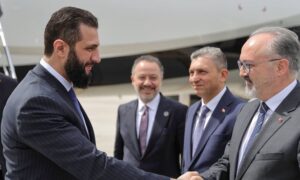
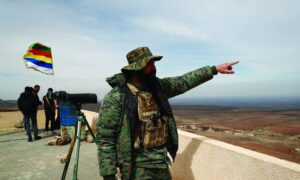
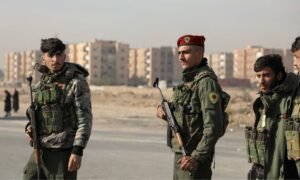
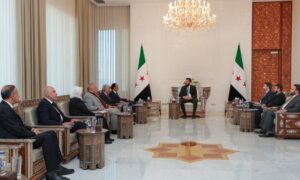
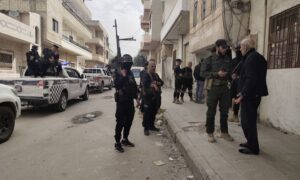
 More Politics
More Politics